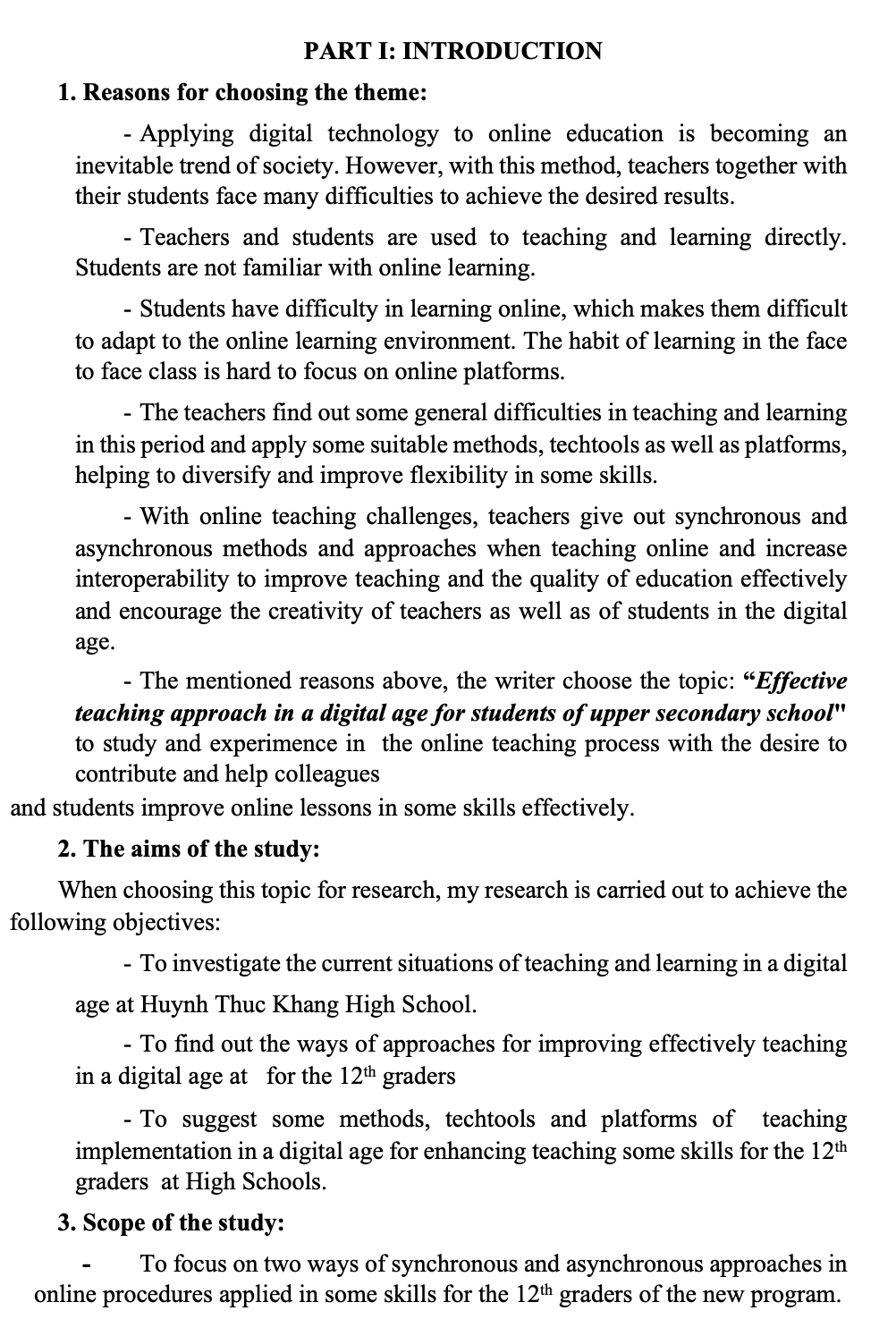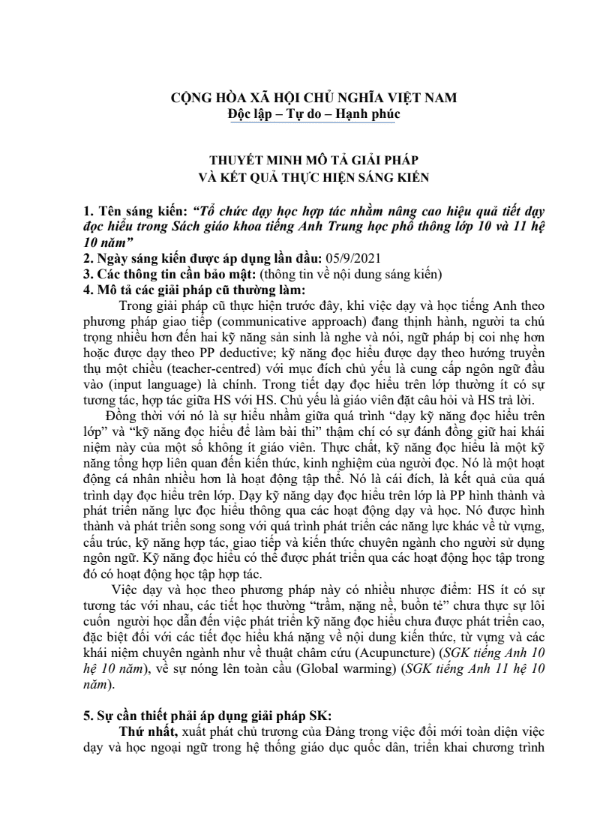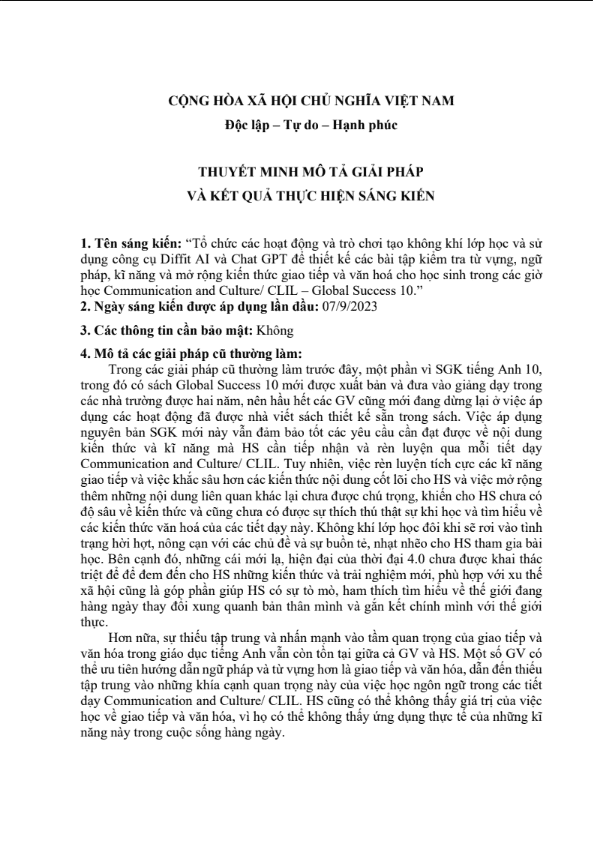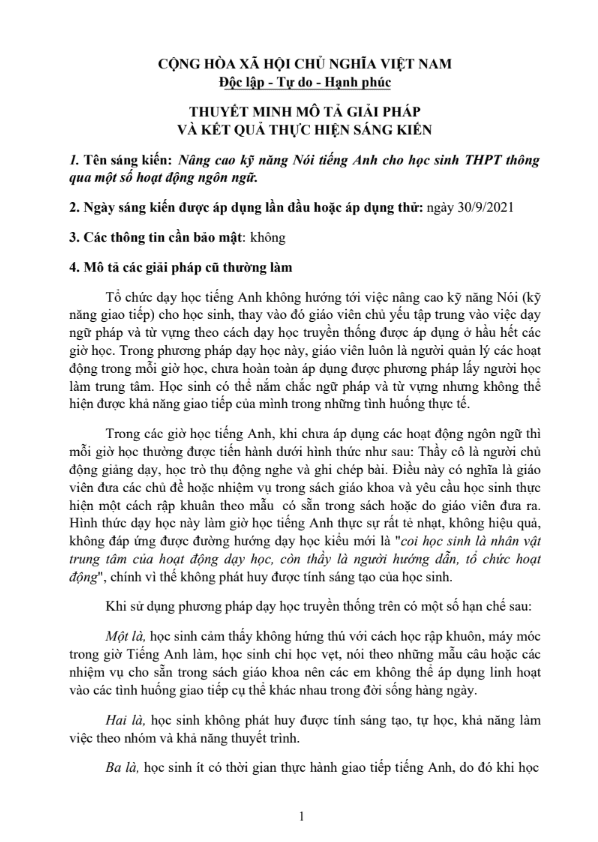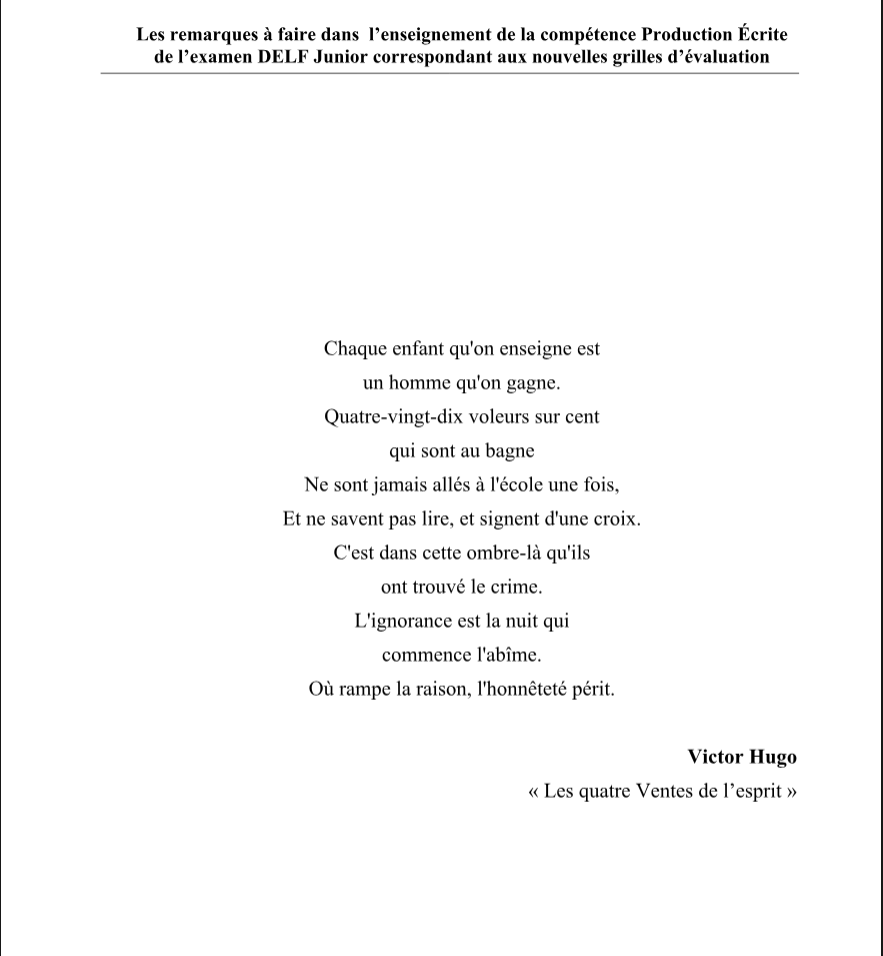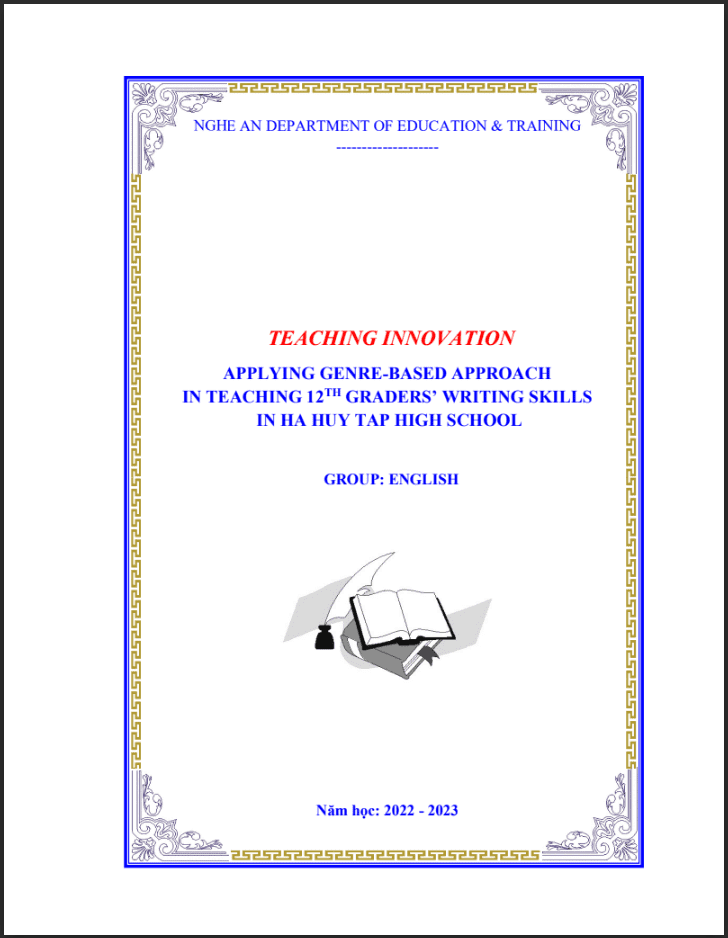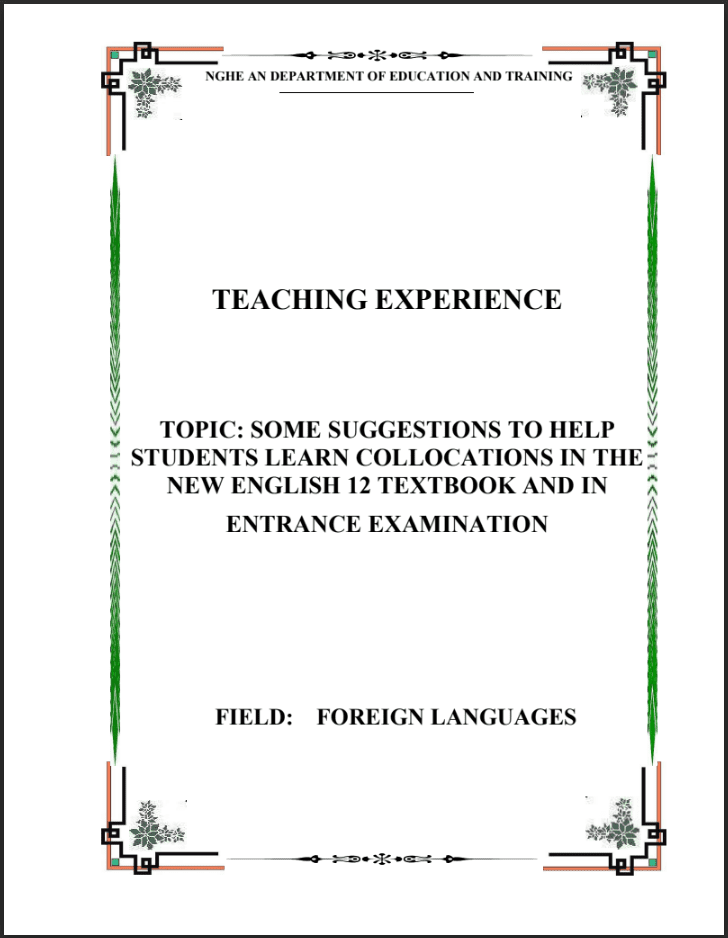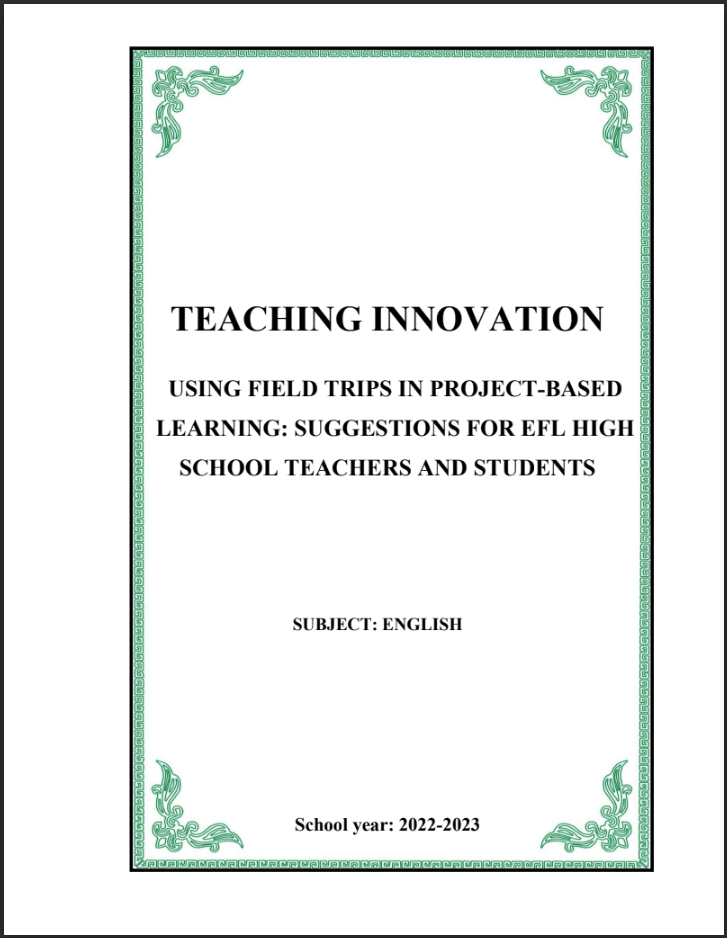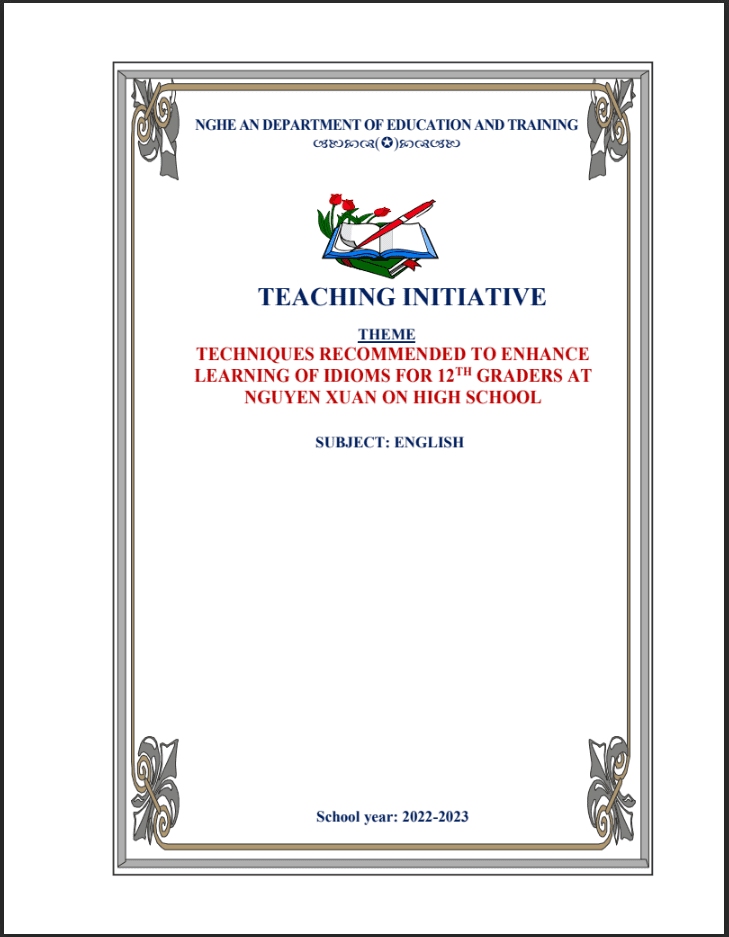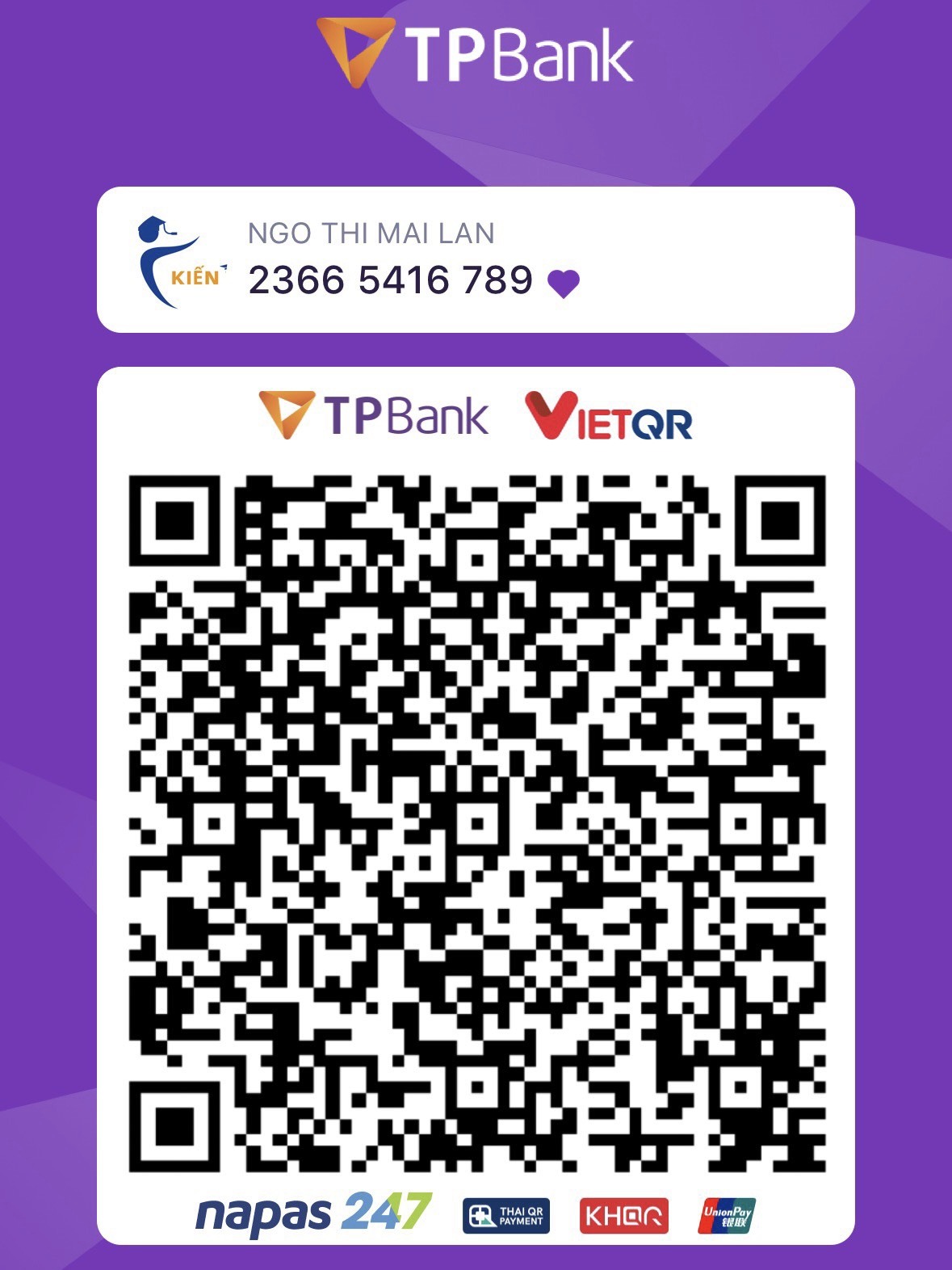SKKN Effective teaching approach in a digital age for students of upper secondary school
- Mã tài liệu: MP0061 Copy
| Môn: | Tiếng anh |
| Lớp: | 12 |
| Bộ sách: | |
| Lượt xem: | 1207 |
| Lượt tải: | 4 |
| Số trang: | 43 |
| Tác giả: | Trần Thị Mỹ Linh |
| Trình độ chuyên môn: | Cử nhân đại học |
| Đơn vị công tác: | THPT Huỳnh Thúc Kháng |
| Năm viết: | 2021-2022 |
| Số trang: | 43 |
| Tác giả: | Trần Thị Mỹ Linh |
| Trình độ chuyên môn: | Cử nhân đại học |
| Đơn vị công tác: | THPT Huỳnh Thúc Kháng |
| Năm viết: | 2021-2022 |
Sáng kiến kinh nghiệm “SKKN Effective teaching approach in a digital age for students of upper secondary school” triển khai gồm các biện pháp nổi bật sau:
– Synchronous Learning Tools and platforms: Creative apps for collaborative learning in synchronous environments
– Asynchronous Learning Tools
– Asynchronous Learning Platforms
Mô tả sản phẩm
TABLE OF CONTENT
PART I: INTRODUCTION
- Reasons for choosing the theme:
- Applying digital technology to online education is becoming an inevitable trend of society. However, with this method, teachers together with their students face many difficulties to achieve the desired results.
- Teachers and students are used to teaching and learning directly. Students are not familiar with online learning.
- Students have difficulty in learning online, which makes them difficult to adapt to the online learning environment. The habit of learning in the face to face class is hard to focus on online platforms.
- The teachers find out some general difficulties in teaching and learning in this period and apply some suitable methods, techtools as well as platforms, helping to diversify and improve flexibility in some skills.
- With online teaching challenges, teachers give out synchronous and asynchronous methods and approaches when teaching online and increase interoperability to improve teaching and the quality of education effectively and encourage the creativity of teachers as well as of students in the digital age.
- The mentioned reasons above, the writer choose the topic: “Effective teaching approach in a digital age for students of upper secondary school” to study and experimence in the online teaching process with the desire to contribute and help colleagues
and students improve online lessons in some skills effectively.
- The aims of the study:
When choosing this topic for research, my research is carried out to achieve the following objectives:
- To investigate the current situations of teaching and learning in a digital age at Huynh Thuc Khang High School.
- To find out the ways of approaches for improving effectively teaching in a digital age at Huynh Thuc Khang High School for the 12th graders
- To suggest some methods, techtools and platforms of teaching implementation in a digital age for enhancing teaching some skills for the 12th graders at High Schools.
- Scope of the study:
- To focus on two ways of synchronous and asynchronous approaches in online procedures applied in some skills for the 12th graders of the new program.
- To provide some techtools, platforms to support the two approaches.
- Method of the tudy:
- Questionnaire research method
- Observative method
- Designing activities method
- Contributions of the study
The teachers give out two ways of synchronous (virtual classroom) and asynchronous approaches in online process applied in some skills for the 12th graders of the new program with some techtools and platforms to support the two approaches, helping students concentrate on learning, overcome difficulties and promote students‟ creativity to have more effective lessons.
PART II: CONTENTS OF THE STUDY
- Theoretical background
- 1. The concept of teaching approach in a digital age
Teaching approach in a digital age is the innovative use of digital tools and technologies during teaching and learning, and is often referred to as Technology Enhanced Learning (TEL) or e-Learning. Exploring the use of digital technologies gives educators the opportunity to design engaging learning opportunities in the courses they teach, and these can take the form of blended or fully online courses and programmes.
Digital learning is an instructional practice that ultimately helps students. It makes use of a broad range of technology-enhanced educational strategies. It includes blended learning, flipped learning, personalized learning, and other strategies that rely on digital tools to a small or large degree.
According to Louise Starkey‟s “Effective teaching in the digital age requires a high level of professional knowledge and skill. The teacher needs to be able to recognise what students know and don’t know, draw on discipline knowledge, pedagogical content knowledge, educational psychology and knowledge of the context to teach the students concepts and skills that they will need to participate in society. They also need to facilitate opportunities for students to collaboratively create and critique knowledge within and beyond the formal learning environment. Teaching will be a highly skilled and
demanding profession.”
Teaching and learning in the digital age combine traditional and modern approaches to make education more holistic and dynamic for the students. In an online distance learning or remote learning setup, students study concepts and theories virtually or through the internet.
1.2. Principles of teaching in a digital age
To have good teaching effectively in a digital age, in principle, is fundamentally the same as good face-to-face teaching. For online teaching to be successful, teachers need to adapt their facilitation strategies depending on how they intend to use the online learning environment. For example, there could be differences in applied strategies for various modes of online teaching and their level of „onlineness‟. Online teaching, particularly for the fully online mode, does not necessarily mean transferring the exact same teaching approach and curriculum that would be applied in a fully face-to-face teaching situation. In some instances this would be very problematic and others less suitable. For example, a verbal presentation, commonly used in fully face-to-face teaching assessment, would be difficult to conduct in a fully online course. Ko and Rossen (2004) remind us that “The move to the online format offers you opportunities to try new methods and approaches. Preserving the quality of your course need not mean finding the exact translation of what you’ve always done in the past” (Ko & Rossen, 2004: 48).
Depending on your course‟s learning outcomes or objectives and the course topic, there would be variations in approaches even within the same online mode. So there is no one answer to what good online teaching looks like. However, there are broader principles that can be applied to assist student learning. Hodges (2004) found a number of consistent features that are important when motivating online students:
- Self-efficacy: student confidence in believing they can achieve online
- Relevance and authenticity
- Meaningful application of feedback
- Encouragement of student collaboration
- Variety in all areas of teaching
- Usability of the online learning environment
Where possible, strategies that integrate these features into an online course should be applied as they assist online students adapt to the online learning environment and make the experience more student-centerd. For more information regarding motivating online students, examples and discussion about these features see motivating and engaging online students.
Being prepared to teach online
To be a good online teacher, you need to be prepared for the various tasks required during semester. Being prepared has many advantages:
- Allowing you to anticipate potential problems and being in a position to make adjustments when necessary
- Developing confidence that will have a positive flow-on effect to your students
- Enabling you to better manage your course in areas such as workload, time management and sustainability to ensure schedules are maintained and stress is avoided
There are many ways to prepare for online teaching:
- Becoming involved with communities of practice
- Collaborating with others involved in teaching about online pedagogical approaches and technical issues
- Offering your own advice to others and receive feedback from others about your ideas
- Enrolling in staff development programs
- Knowing what will be expected of you as an online teacher developing a strategy to ascertain any extra necessary skills and competencies
required
Communicating clear expectations to students
TÀI LIỆU LIÊN QUAN
- 7
- 105
- 1
- [product_views]
- 5
- 173
- 2
- [product_views]
- 4
- 165
- 3
- [product_views]
- 4
- 129
- 4
- [product_views]
100.000 ₫
- 6
- 434
- 5
- [product_views]
100.000 ₫
- 2
- 507
- 6
- [product_views]
100.000 ₫
- 9
- 546
- 7
- [product_views]
100.000 ₫
- 4
- 409
- 8
- [product_views]
100.000 ₫
- 2
- 595
- 9
- [product_views]
100.000 ₫
- 0
- 538
- 10
- [product_views]

